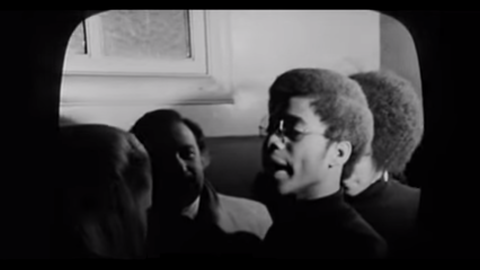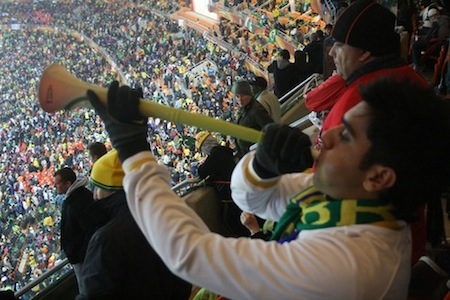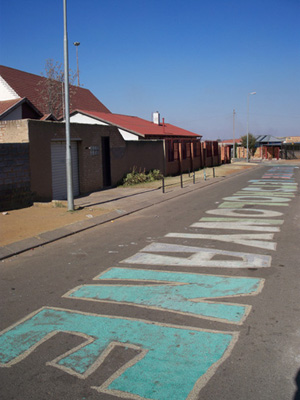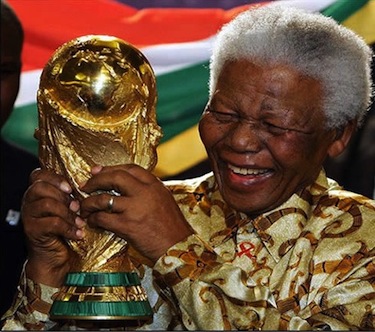The following is an edited transcript of an e-mail interview between the artist Luke Willis Thompson and Social Text editor Tavia Nyong’o that was conducted over the spring and summer of 2015, during and after the New Museum triennial, within … Continue reading “In Conversation with Luke Willis Thompson”
Category: Sport and Culture
Curtis Jackson and the Jeweled Skull
Chris RandleIt’s hard to say that someone had a bad year because they made fewer millions than usual. And it’s even harder to pity 50 Cent under any circumstances. But still, 2009 was rough on the hip-hop superstar otherwise known as … Continue reading “Curtis Jackson and the Jeweled Skull”
World Cup Soccer: Enjoyment and Identification
Eli Jelly-SchapiroFootball fans can be divided, somewhat crudely, into two categories: those attracted to the game for aesthetic gratification; and those whose fandom is rather driven by feelings of group solidarity. These categories are not mutually exclusive. A beautiful move acquires even greater beauty when performed by a player or team with whom one identifies; feelings of solidarity are emboldened when joined to rare artistry.
Bafana Bafana: The Reckoning
Eli Jelly-SchapiroWhen Siphiwe Tshabalala scored for Bafana Bafana against Mexico on June 11, he provided the World Cup the sublime opening note longed for by his country, and by followers of football across the planet. Mexico’s late equalizer dampened the local … Continue reading “Bafana Bafana: The Reckoning”
World Cup Security Workers Protest
Eli Jelly-SchapiroIn November of 2007 the workers building Durban’s Moses Mabhida Stadium staged a wildcat strike, demanding monthly project bonuses and better Health and Safety standards. Their action helped inspire a wave of such work stoppages at stadium sites throughout the country, and contributed to one of the abiding narrative themes of the World Cup’s lead-up: would the infrastructure be ready in time?
The World Cup III: In The Stadium's Shadow
Eli Jelly-SchapiroFifteen years after the new South Africa’s first democratic elections, the dream of a true, non-racial, economically just “Rainbow Nation” endures. But so too do the inequalities of race and class that are the legacy of apartheid and its colonialist antecedents. In April of 2009 Jacob Zuma, anointed restorer of the liberationist mantle, rode a wave of populist energy to the national presidency. His ascension, however, has not quelled a resurgence of social unrest. For the majority of South Africans who retain faith in the nation’s potential, but mourn the violent inequities that continue to shape daily life in apartheid’s aftermath, the World Cup is cause for a difficult if needed national reckoning. [Part 3 of a 3 Part series.]
The World Cup II: Bafana Bafana
Eli Jelly-SchapiroSoccer’s history in South Africa, and perhaps on the continent at large, began in 1862, when British sailors, soldiers, and bureaucrats organized a match in Cape Town. Consistent with its British public school origins, soccer in South Africa was initially a game of the colonizing classes. Like cricket and rugby, the sport was used to nurture an imperialist ethos of mannered masculinity amongst British youth, imperial servants, and privileged colonial subjects. [Part 2 of a 3 part series.]
The World Cup: Will South Africa Shine?
Eli Jelly-SchapiroFrom the editors: In the lead-up to the World Cup, the first to be held in Africa, we are serializing in three parts an essay by Eli Jelly-Schapiro on the cultural politics of soccer. This essay will then be followed by a Periscope forum about the Cup. Read more.








